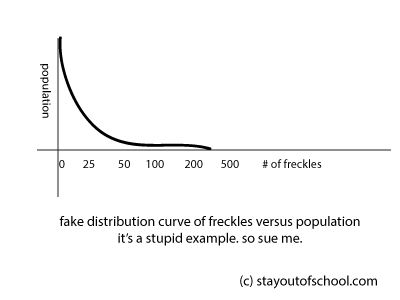Ripe For The Picking and Right On Trend: Real Life
If you haven’t already heard, Baratunde Thurston is on the cover of the July/August ’13 issue of Fast Company. (Yes! The same Baratunde from The Artist Interviews!)This is great. B is one of my favorite people on this earth…. and I’m hoping that his article is actually a harbinger of a larger trend that I’ve been seeing start to pop up this week. It may not be what you’d expect featured in Fast Company, a magazine focused on, well, companies, and, more pointedly, work.…but here’s hoping.You should certainly read Baratunde’s article. The man is brilliant and funny—likely why he’s, you know, on the cover. That being said, the gist of the article is that he hung it all up for twenty-five days over Christmas last year—Instagram, Facebook, Twitter, email—and lived, by the sounds of it, a lot like our parents did in the ‘80s. The experience he described sounded familiar, like the vestiges of even my own former analog life, a time when people were actively debating whether so much as having call waiting on your home line was rude.“I’m not going to ask someone to ‘hold on’ so I can find out if the person on the other line is more important than she is,” my mother had pointed out back then.
Playing To Work is Stupid
Most of the current writing on taking time off that I’ve seen still circles back to its positive effect on productivity, like this February 9th Times article called Relax! You’ll be more productive! It’s a sick trend. Go play ping pong in the lounge so that you’ll be better at work. Take a vacation so you’ll be better at work. Paint this painting so you’ll be…. You get the idea.It’s sexy in “corporate culture” talk to refer to this idea of vacating in the hopes of being a better worker. Specifically from that Times article:
In 2006, the accounting firm Ernst & Young did an internal study of its employees and found that for each additional 10 hours of vacation employees took, their year-end performance ratings from supervisors (on a scale of one to five) improved by 8 percent. Frequent vacationers were also significantly less likely to leave the firm.
Justify going to Nevis so that work will go better, not so your life will be better.It seems to me that we have forgotten that better lives are supposed to be the point here—creating them for ourselves and for the people around us. Admittedly, I was a little worried as I opened B’s Fast Company article that I was going to read another treatise on not-working-so-I-could-work-better.(Baratunde, let me just say right now that I’m sorry I doubted you for a second.)Then I got to this bit:
I was reading long books, engaging in meaningful conversations, and allowing my mind to wander and make passive connections I had previously short-circuited with social queries, responses, interruptions, and steady documenting and sharing of unripened experiences.
“Yes!” I actually shouted into the pages. That’s IT! This new m.o. means we never let anything RIPEN!Then I put it down for a bit and let some foodie thoughts of his details about whiskey and oysters ripen up.
In The Real World: Why Deciding A Pursuit Is Worthwhile Only If It Helps You At Work Is Killing Your Soul
“When are we ever gonna use this in the real world?” If you’ve taken a class with a bunch of teenagers ever in your life, you’ve heard someone whinging like this. Even teachers are guilty of talking about things that happen “in real life,” (as opposed to what happens in that mystical alternative universe, the classroom).In kind, yesterday morning as I nursed my single cup of coffee and noodled around the web, I noticed that my friends Meg and Amber had shared this little nugget from the NY Times called The Decline and Fall of the English Major. Now, before anyone starts lobbing over commentary like, “oh please, no one needs Shakespeare to get a jay-oh-bee,” let me just say that I’m not an English major, either. Don’t come at me.The article argues the importance of learning to write well—a large part of which is making and articulating those exact “passive connections” Baratunde noticed he was short circuiting when living the ultra-connected life. The beauty of the Times article, though, is that the lamenting prof is arguing that at a very fundamental level, life is at stake when we allow students to drift from the humanities:
Studying the humanities should be like standing among colleagues and students on the open deck of a ship moving along the endless coastline of human experience...
[Can I just say that I love that image?] She goes on to say that,
[Writing well] is about developing a rational grace and energy in your conversation with the world around you. No one has found a way to put a dollar sign on this kind of literacy, and I doubt anyone ever will. But everyone who possesses it — no matter how or when it was acquired — knows that it is a rare and precious inheritance.”
Rational grace. That's what it's all about, baby.I don't know about you, but my experience of The Twitters might not so easily qualify as an experience of or exercise in rational grace.It's more like the roller derby of marketing.
Work Is Not The Be-All and End-All Of Real Life
Some of you will remember that last fall I signed up for a weekly ceramics class over at the Armory, hence the crummy (abeit definitely improving) pottery collection. Since that time I’ve made many, many bowls, a good number of which are so heavy they could be used as home defense in the case of an intruder. A few of them are less than embarrassing. One or two are actually pretty damn good.It’s now been eight months. Here at the blog I was afraid cultural pressure was going to have me turn around and tell you how much better my work life is now that I’ve made a mug by hand.Guess what. It isn’t. I’m starting to think that that’s a great sign!I suddenly have a creative life outside my work. I'm a productive person, not just a productive worker!Over at the studio, covered in clay, wearing deeply unflattering jeans, chatting with people in my community whom I otherwise would never have met, letting people younger than I am teach me a skill and tell me my technique sucked, practicing patience and attention— I’m studying the humanities. I’m enjoying, for at least one night a week, one of the major elements of real human experience, creation.I’ve been learning about myself; I’ve had time to think; and it’s quite possible that my mediocre pottery practice, in tandem with a whole lotta yoga, has begun to heal my own frazzled, over-connected brain.This is the human experience! This is living!I hope we become more and more disgruntled with how easily that slips away in the era of digital connectivity and start hearing a hell of a lot more about it.Fast Company! The NY Times! Lil’ ol’ Stay Out of School. Next, the world!In the meantime, let me know if you need me to make you a pot.What kind of human experience are you having lately?





